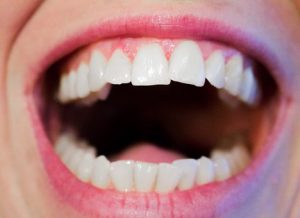
It is estimated that 80% of all diseases have the root causes in your mouth. Your mouth is a window into the health of your body. Poor oral health is directly associated with a number of cancers.
Poor oral health can be the results of nutritional deficiencies, infection and systemic diseases, which affect the entire body and may first become apparent due to mouth lesions or other oral problems.
There are a lot of factors influencing oral health, such as:
- Oral infection, viruses (such as human papillomavirus), bacteria and fungi
- Smoking
- Alcohol
- Oral trauma
- Multiple oral sex partners
Oral health is associated with development of a number of cancers. Periodontal disease, chronic trauma, irritation of the oral mucosa, and tooth loss are associated with the following cancers:
- Oral cancer
- Upper gastrointestinal and gastric cancers
- Pancreatic cancer
- Lung cancer
- Esophageal cancer
It is important to point out the possible confounding factors affecting the association between periodontal disease and various cancer risks. Smoking, socioeconomic status, diabetes, age, gender, and ethnicity, and genetics constitute the most common potential confounding factors affecting cancer risk.
Dietary factors are also associated with cancer risks, because patients who have lost many teeth may be less able to include some foods in their diets, therefore eliminating their potential advantageous effects against cancer.
The bacteria that cause periodontitis, a disease affecting the tissues surrounding the teeth. Such chronic infection triggers inflammation throughout the body, which can potentially promote the growth of cancer and development of oral cancer and certain other cancers.
Thus, the virulence factors of the pathogenic bacteria underlying gum disease are able to spread from the mouth to other parts of the body, most likely in conjunction with the bacteria, and take part in central mechanisms of tissue destruction related to cancers.
The poor oral health, such as ulcers, gum inflammation, sores or lesions and any openings in the mouth might provide entry for HPV, which cause a number of cancers.
Apparently, early diagnosis and prevention of oral illness are very important not only for oral health, but also for overall wellbeing. In the long run, this is extremely cost-effective for society.
Today, more than 70 percent of the adult U.S. population has some form of gum disease. Maintaining oral health through good oral hygiene is essential to overall good health.
Here are some ways to maintain your mouth healthy:
- Visit your dentist twice a year. Catch problems such as decay, gum diseases, trauma, and cancer et al. at an early stage when they are treatable.
- Avoid soda. Soda is bad for your teeth. Two ingredients, phosphoric acid and citric acid, eat away the surface of your teeth, make your teeth enamel softer and more susceptible to cavities.
- Avoid sugar. Sugar is a major culprit in tooth decay. It fuels bacteria and acidity in your mouth, causing plaque to form and eat away at your enamel and gums.
- Quit smoking. The nicotine and tar in cigarettes not only turn your teeth an unsightly shade of yellow, they eat away at your gums. Smoking creates a ripe environment for bacteria and plaque on your teeth and along the gum line. That harms tissue, degrades the bone that supports teeth, and, eventually, increases your risk of tooth loss. Even worse, tobacco chemicals can lead to oral cancer.
- Use the right toothbrush and with correct technique. You want a brush with soft bristles. It should last two to three months. It’s ready to be replaced when you notice bent bristles. Brush your teeth at least twice a day. Hold the toothbrush at a 45-degree angle, pointed toward the gum line, and use gentle, short, circular motions.
- Dental floss. Flossing fosters healthier teeth and gums and break up plaque while leaving your gums in good shape.
Water flosser is a useful tool to maintain your oral health. It employs gentle water stream to wash your mouth. It is easy to use and gentle on teeth and gums. Water flosser also works very well for people who wear braces.
The gentle water stream gets behind and in-between the metal wires and effectively flushes out food particles and germs. For people already suffering from gum disease, water flosser is often beneficial because they can target bacteria inside deep pockets and massage the affected areas.

One of the best water flossers is Waterpik WP-660 Aquarius Water Flosser. Waterpik has been the gold standard of water flossers for decades and the WP-660 is the best model the company makes.
Here are the features of the Waterpik WP-660 Aquarius Water Flosser:
- Type: Separate water basin
- Power source: AC power
- Reservoir capacity: 90 seconds
- Timer: Beeps every thirty seconds to remind you to move the flosser to a different part of your mouth
- Pressure Settings: 10
- Pulse modulation: flossing and massage
- Included tips: 7, 3 regular ones, 1 toothbrush tip, 1 plaque seeking tip, 1 orthodontic tip, and 1 pick pocket tip
- Rotating tips: 3600
- Size: 10 x 5 x 4 inches
- Weight: 2 pounds
- Warranty: Three years
It’s an outstanding investment to make for the health of your mouth.
Click here to purchase Waterpik WP-660 Aquarius Water Flosser now!



Great article, Anthony.
Yes, not many of us realize the importance of oral hygiene. Great article. Of course, as the cliche goes, you learn something new every day – I just did – never heard of a water flosser. Seems like an interesting gadget. I will have to get a closer look.
Thanks for sharing.
Michelle
Hi Michelle,
It is nice to hear that you learn something new from this post. Water flosser is a good tool to keep your mouth clean and healthy and worth the investment.
Hey Anthony, this is something everyone should read! We don’t stop to think about how our mouths health can affect our whole body, and how what we put into them can have an adverse effect overall with our health.
Great article,
Kim
Hi Kim,
Thanks for your encouragement. Yes, mouth is the first line of defense against diseases. We need to pay attention to oral health, which will benefit overall health.
Hello Anthony,
A very interesting article, I didn’t know how important is the oral health care for so many diseases. Ok to brush our teeth twice per day is ok but about water flossers, I just heard now, I never used one and I think is time to do it:) I will give it a try. It completes your oral care after the toothbrush.
I have learned a lot of things reading your post and I will follow your advice.
Now about the measures, we have to take to prevent the dental problems.. I know nobody like going the dentist, is the only doctor I hate actually:)). You are right we have to go for a check twice per year, is better to prevent and to take any problem from an early stage.
Thanks for such a helpful and informative article.
Have a good day,
Cristina
Hi Cristina,
Thank you very much for your encouragement and I am happy to hear that you gain some useful information from my blog.
You are right that the most effective way to cure disease is prevent it from occurring. Maintaining oral health is one of the best way to prevent diseases, including cancer. To a society, it is the most cost-effective way. We should encourage everyone to pay attention to oral health so that many diseases can be prevented.
Keeping your mouth clean is so important.
I always remember when I was younger my Mother screaming at me for not cleaning my teeth. I used to hate it.
When I was in my 20s my teeth became really bad. I lost 2 teeth and had gum problems simply due to laziness.
I learned from there how important it was.
Of course, in those days it was a simple toothbrush and toothpaste to solve the issue, but I can see now things have really developed.
Thanks for a very good breakdown of some of the common problems. I found it very educational.
Chris
HI Anthony,
Thanks for this great article. I did not know the high link between poor oral health and serious disease. It was interesting to see it as you spelt it out clearly.
Luckily I have never had cancer before (touch wood), but I do know that when I am sick my mouth feels “yucky” and food doesn’t taste as good. I do think that it is important to visit your dentist x2 per year.
I have not seen the water flosser before, does it work? Will it weaken my teeth at all?
Hi Glenys,
Thank you very much for your encouragement and support. I am happy to hear that you have a good oral health habits. Poor oral health causes serious diseases, such as cancer; on the other hand, some diseases in the other parts of the body also cause oral illness, leading to “yucky” mouth feeling. In the late case, you need to cure the distant diseases in order to maintain your oral comfort.
Water flosser is a good way to keep your mouth healthy. It not only clean the mouth, but also massage the mouth.
Hi Anthony. Thank you for a very informative article. I especially appreciate your recommendations on how to maintain good oral health. I’ll have to make some adjustments such as seeing the dentist more regularly and using the right tooth brush as you suggest.
Oral health is something we should not ignore. Regular visits to the dentist are a must as well as a good oral practices we do on a daily basis. When I was younger I neglected this and now that I’m a senior I am paying the price for that neglect.
Hi Craig,
Thank you very much for the valuable advice. I guess it is not late to pay attention to your oral health now. I wish all the young people would see your message and they start early to take good care of their oral health. Thanks for sharing your experience.
Dear Anthony,
Thanks for the post on oral health care. And I liked it “Oral health is overall health” Yes indeed that’s true.
Very useful advice “Use the right toothbrush and with correct technique. You want a brush with soft bristles. It should last two to three months. It’s ready to be replaced when you notice bent bristles. Brush your teeth at least twice a day. Hold the toothbrush at a 45-degree angle, pointed toward the gum line, and use gentle, short, circular motions.” Thanks a lot!
Your Friend,
Paul
Hi Paul,
Thank you so much for a such loyal audience. I am impressed by your memory of the key techniques on oral care.
Hi Anthony,
That is a shocking statistic, that an estimated 80% of all diseases have the root causes in your mouth. I have been using a water flosser, (although it is a different brand) and it works great for removing anything that my toothbrush doesn’t get. I would highly recommend a water flosser to anyone not currently using one. Thanks for all the great information.
Lisa
Hi Lisa,
Thank you very much for sharing your experience on water flosser. I just start to use it recently and I love it. I generally do it after brush and it is a very nice feeling.
Hello Anthony, it is truly amazing what we need to know about our oral health. I do like the idea of the water flosser? How does it work and is it safe for children too?
So much information packed into this post. Great job.
In peace and gratitude, ariel
Hi Ariel,
I use water flosser for a while now and I love it. The water massage make your entire mouth relaxed and clean. For young kid, it is best to use it with assistance of adults. Following the instruction, there should not have any safe issue. Thanks for stopping by.